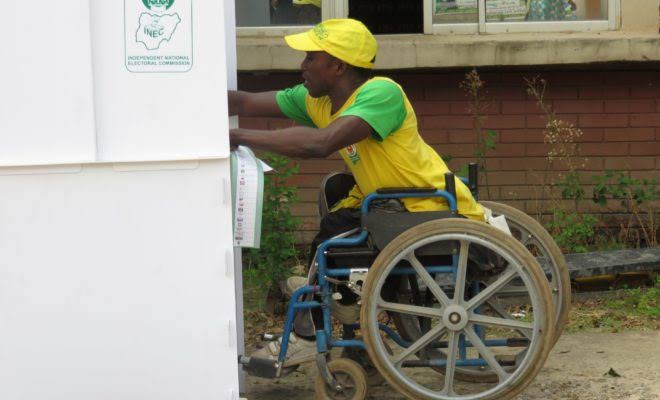In the wake of the 2023 general elections, key stakeholders and community leaders gathered in Ibadan to deliberate on the need for comprehensive reforms in Nigeria’s electioneering processes. The town hall meeting, held in Akinyele and Ibadan North Local Government Areas (LGAs) and organized by SOS Children’s Village, highlighted significant lapses and proposed strategic improvements to ensure credible, free, and fair elections in 2027.
Accessibility for Persons with Disabilities
Musa Akinsawe, the Assistant Secretary of the Joint Association of Persons with Disabilities (JONAPWD), emphasized the critical need to enhance access for persons with disabilities (PWDs). Akinsawe stressed the importance of involving PWDs in the planning stages of election processes to ensure their full participation.
“Part of what we are clamouring for is accessibility to electoral venues and convenience in voting,” Akinsawe stated. “Elections for people with disabilities must be easily accessible; the ballot box must be where PWDs can vote without being assisted by anyone.”
Reorienting Electoral Officers and Voter Education
Akinsawe also called for reorientation programs for electoral officers and continuous voter education. He believes that these measures are essential for creating a more inclusive and efficient voting environment.
Community Engagement and Cultural Values
Chief Isimiola Olowoyo, the Assistant Secretary of the National Council for Women Societies, highlighted the importance of increased community engagement to restore eroded cultural values. She noted that her association would continue to sustain community engagement initiatives aimed at instilling the right values, which she believes are crucial for good governance in Nigeria.
“Lapses recorded in the last elections, such as the availability of few security personnel and delayed electoral materials, should be addressed,” Olowoyo remarked. “They should empower more security officers so that there would be no violence.”
Advocacy from Religious and Traditional Leaders
Representatives from religious bodies and traditional rulers in the two LGAs echoed the call for increased awareness creation starting from the basic education level. They also emphasized the need for continuous voter registration to ensure that all eligible citizens can participate in the electoral process.
Competency Over Sentiment in Choosing Leaders
Grace Sambo, Programme Officer for SOS Children’s Village Nigeria, urged communities to learn from past elections and prioritize competency over ethnicity, tribalism, and religion when electing leaders. She stressed that sentiments must be discarded to foster a more unified and effective governance structure.
“Peaceful elections and existence have numerous benefits, such as the stability of families, which positively impacts children,” Sambo noted.
Rejuvenating Cultural Norms and Addressing Poverty
Gabriel Adajie, State Coordinator of SOS Children’s Village Nigeria, called for a rejuvenation of cultural norms that promote value systems in communities. He highlighted the detrimental effects of poverty, which he said has been weaponized to divide Nigerians, and urged for a change in this narrative come 2027.
“The electorate, in a way, are encouraging the political class to continue with the way things are,” Adajie said. “For us to change what is on the ground, we have to make sacrifices. We need to endure hunger so as not to continue making the same mistakes.”
Conclusion
The town hall meeting in Ibadan underscored a collective determination among various stakeholders to address the shortcomings of the 2023 general elections. Their calls for enhanced accessibility, increased security, greater community engagement, and a focus on competency over sentiment signal a concerted effort to ensure that the 2027 elections will be a model of credibility, fairness, and inclusivity. As Nigeria moves towards this crucial election, the voices from Akinyele and Ibadan North LGAs resonate as a powerful reminder of the need for systemic reform and the empowerment of all citizens in the democratic process.


